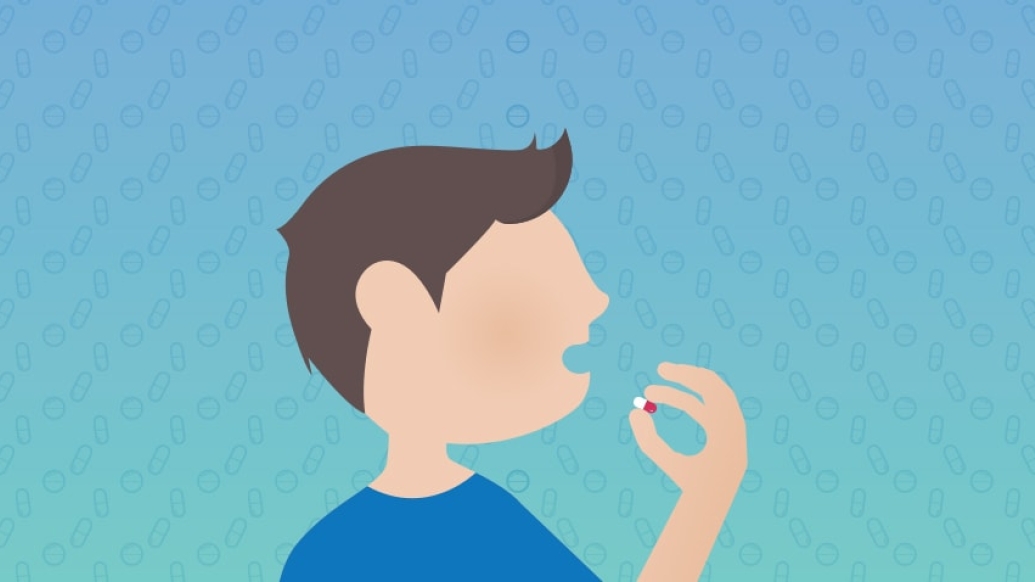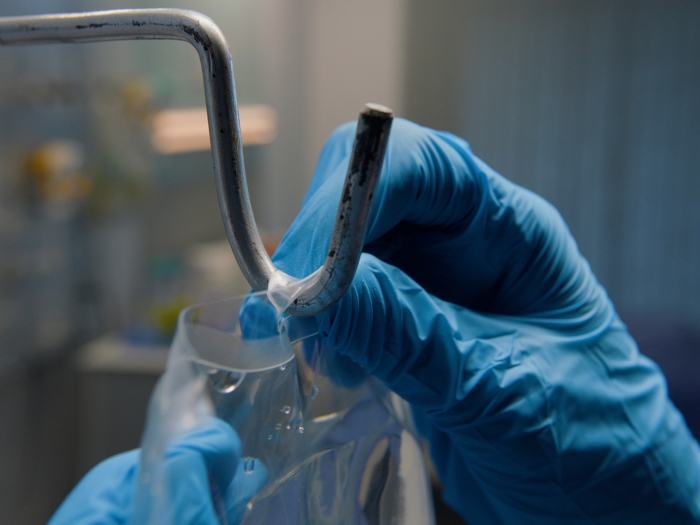One in 20 young adults continues to receive opioid prescription refills long after surgery, a study presented at the American Academy of Pediatrics national conference finds.
7:00 AM
Author |

Persistent prescription opioid use may not only be a problem for adult patients. It's an issue for teens and young adults, too, a new study suggests.
MORE FROM THE LAB: Subscribe to our weekly newsletter
Nearly 5 percent of patients ages 13 to 21 who had common surgical procedures continued to receive opioid prescription refills three to six months after surgery, according to new data presented by University of Michigan researchers at the American Academy of Pediatrics National Conference & Exhibition on Sept. 17.
Previous studies have estimated that 3 to 10 percent of adult surgery patients continue opioid pain medication refills over the same period.
"We know chronic opioid use is a significant problem in the U.S., but there is very little data on how this issue affects adolescent patients," says lead author Calista Harbaugh, M.D., a resident at the University of Michigan Medical School and a pediatric surgery researcher at U-M's C.S. Mott Children's Hospital.
"We found a concerning number of young adults continuing opioid prescription refills long after surgery. Whether they are using the opioids themselves, saving them or giving them away to peers, this presents a great health risk for both patients and the community."
This is the first known study to show that long-term opioid use after surgery may be a significant problem for teens and young adults. Researchers analyzed data using commercial claims from the Truven MarketScan research databases between Jan. 1, 2010, and June 30, 2015.
The cohort study included 88,637 privately insured adolescents (with an average age of about 17) who had never used opioids before and who had one of 12 common surgical procedures, including tonsil or adenoid removal, hernia repair, cholecystectomy and scoliosis repair.
Of the total, more than 4,343 patients still got opioid refills 90 to 180 days after surgery, according to pharmacy claims.
"One of the most common things we hear when we raise this issue is 'doctors don't give kids opioids,' but we know that's not accurate. We found that nearly 90,000 young people in this study received opioids, and almost 1 in 20 of them continued to receive these medications months later," says Harbaugh, a member of the Michigan Opioid Prescribing Engagement Network (Michigan-OPEN) at the Institute for Healthcare Policy and Innovation.
"Doctors need to be aware that refilling opioid prescriptions for teens can be a problem by either increasing the risk of dependence or increasing access to medications that may be distributed to other youth."
One of the most common things we hear when we raise this issue is 'doctors don't give kids opioids,' but we know that's not accurate.Calista Harbaugh, M.D.
Balancing treatment with risk
Harbaugh notes that researchers looked at opioid prescriptions, not necessarily opioid use. But refills indicate the medications were used, stored or diverted into the community, she says.
SEE ALSO: Why One Pain Specialist Hasn't Prescribed an Opioid in 10 Years
As with adults, youths with a history of substance use disorders or chronic pain diagnoses may have a particular risk of chronic opioid use, Harbaugh notes.
"This demographic group is especially vulnerable to misuse of substances like opioids, and we know young adults most often receive opioids from leftover prescriptions from family and friends," Harbaugh says. "Adolescents may think that prescription medications are safer than drugs like heroin, not realizing they have the same addictive properties and can be dangerous. Chronic opioid use can result in addiction, overdose or even death."
Educating young patients and their parents about the potential harms of continued opioid use and how to properly dispose of medications is key, Harbaugh says. Surgeons and providers should also discuss these issues with patients and their families to prevent problems and provide help for patients still seeking refills three or more months after a procedure.
"Our findings reflect an important step toward recognizing that the opioid epidemic is affecting adolescents and young adults in a major way," Harbaugh says.
"We need to treat pain after surgery, but it must be balanced with the risk of providing more opioids than necessary to patients and their communities."

Explore a variety of health care news & stories by visiting the Health Lab home page for more articles.

Department of Communication at Michigan Medicine
Want top health & research news weekly? Sign up for Health Lab’s newsletters today!





